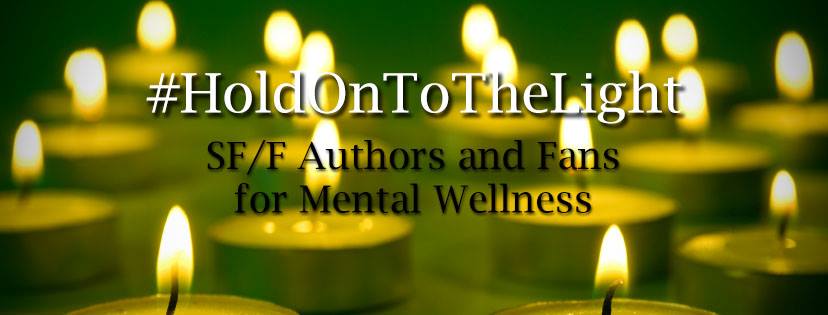
by john | Oct 7, 2016 | #HoldOnToTheLight
This is something I’ve never talked about. Not on this blog, not to my wife, not to a therapist, nothing. So if you don’t want to deal with shit getting real, this is the time where you should probably go be somewhere else. Go buy Midsummer, the new Bubba the Monster Hunter novella. It’s funny as fuck, and my favorite piece in the series by a mile.
You’re still here? Alright, you were warned. But here’s another caveat – I’m not going to discuss this post. Not at a con, not over drinks, not on the phone. I might respond to comments here or on Facebook, but don’t hold your breath. I’m throwing this out here because it might help somebody, not because I have any real desire to dredge it up and talk it out. Got it? Okay, I guess I’ve danced around it all I can, let’s rip the bandage off, shall we?
I was a cutter through the latter half of high school and the first half of college. There wasn’t a term for it then, and I never knew that it was even a thing until decades later, when I heard about teenagers cutting themselves, usually as a coping mechanism or a cry for help. I didn’t talk about it with anyone, didn’t want to kill myself, didn’t have any great desire to mark myself in any way that anyone would ever see.
It was just the only way I could feel anything. I sat in my bedroom on more than one evening and drew lines in my flesh, usually on my left shoulder, with my pocketknife. It made the most sense to cut there – nobody could see it, and I’m right-handed. I didn’t do it every day, not even every week or every month. But on multiple occasions over a period of four or five years, I felt so numb inside that I cut myself just to see if there was a physical pain that I could inflict upon myself to prove that I was still alive, at least physically.
A lot of people who know me have heard me talk about the fact that I’ve dealt with depression for almost thirty years, starting when I was fourteen or fifteen. Until recently, I’d never been diagnosed with anything, and never been medicated for it. It was only through watching a YouTube video that Wil Wheaton posted about his depression and anxiety, and reading a blog post by Jim Hines about his struggles with depression that I got up the courage to go see a psychologist and get tested for some things. The results weren’t terribly surprising; bipolar 2 disorder with some ADHD. Nothing I couldn’t have told the doc myself, other than the plan for treatment. And we’re still working on that – the first antidepressant they tried was completely unacceptable, turned me into a vegetable for a couple days. Can’t have that, I’ve got shit to do. So I go back to the doc in a week or so and we’ll try something different.
But that’s not the point of this rambling post. The point is that while I was graduating in the top ten of my class (fourth or sixth, I don’t remember), getting a college scholarship, taking Honors classes at college and generally doing all the things that a successful student should do, I was doing it all through a mask. The face I showed the world had very little connection to the face I saw in the mirror. Outwardly I was a bright young man, an excellent student with some minor theatrical talent. But inside, there was nothing. I had girlfriends, and I even fell in love for the first time, as much as I could at the time. I had friends, some of whom I’m still in contact with.
But there was an emptiness inside, and overwhelming lack of anything, that I was looking for a way to fill. I guess I knew at the time that I was suffering from depression, but I’ve always been pretty good at compartmentalizing. When I was in school, I could tuck away the parts of me that I didn’t like, bury them under schoolwork or after-school activities. But when I was alone in my room, there was nothing to hide behind, no projects to use to distract myself. There was just me, and my edged friend.
I never did any lasting harm, and even the scars faded after a few years. Looking at my arm now, I can’t see any evidence of my previous self-inflicted wounds. I never wanted to kill myself, and I never wanted to attract attention. I knew what I needed out of the blade – pain. I needed to feel something, anything, and because I was in such a dark place mentally that I never thought I would feel real joy, I thought that pain was the answer. And it helped, to be honest. I’m sure it wasn’t a terribly healthy coping mechanism, but it gave me just enough to get through the night and not do anything more serious to myself, so I’ll take it.
I’ve heard recently about the concept of high-functioning depressives, which I suppose is what I’ve always been. “Bullshit artist” is another very good term for that, by the way. So I guess what I want out of writing this is to put a couple of ideas out there for people who might be feeling that kind of overwhelming darkness, the kind of numbness that just starts in your chest and goes outward to every inch of yourself until you really feel numb inside and out.
One – Whatever method of coping you have is fine. I don’t give a shit if you get tattoos, listen to music too loud, lift weights, run, bike, or listen to B.B. King and play tic-tac-toe on your upper thigh with an X-Acto knife. If it keeps you from making the deep cut with the vein, or taking a whole bottle of sleeping pills with a Jim Beam chaser, or running a hose from the exhaust pipe to the driver’s window, then fine. Cope however you need to cope, because you’re stronger than you think, and it gets better.
Two – It does get better. I stopped cutting myself in college. I don’t remember the last time I hurt myself on purpose, outside of drinking with Drew Hayes. And there was no sudden realization of “hey, I’m fine now” to mark the end of that darkness. There was just a general lack of need to see my own blood to prove that I wasn’t empty inside. I just didn’t need to do it anymore. I still haven’t gotten the treatment I probably need, and there are still weeks and months when I just don’t have the bandwidth, the energy, or whatever metaphor you want to use for the ability to get shit done. I fight the monster every single day, but it’s been a long time since I let the monster make me bleed.
Three – There are people that care. There are people that can help, and there are people who want to help. If the monster gets to be too much, then go find one. That’s what this #HoldOnToTheLight campaign is about – helping people find the resources and get better. Because we all fight the beast from time to time, and sometimes we need backup. Find your backup, and don’t be afraid to call on them.
Thanks for reading. I hope there’s someone out there who can find this helpful, because to be brutally honest, sharing this sucked and I don’t ever want to do it again. But I will. Because if I can help one other person realize that it’s worth keeping going, then it’s worth my discomfort. Take care of yourselves.
JGH
About the campaign:
#HoldOnToTheLight is a blog campaign encompassing blog posts by fantasy and science fiction authors around the world in an effort to raise awareness around treatment for depression, suicide prevention, domestic violence intervention, PTSD initiatives, bullying prevention and other mental health-related issues. We believe fandom should be supportive, welcoming and inclusive, in the long tradition of fandom taking care of its own. We encourage readers and fans to seek the help they or their loved ones need without shame or embarrassment.
Please consider donating to or volunteering for organizations dedicated to treatment and prevention such as: American Foundation for Suicide Prevention, Hope for the Warriors (PTSD), National Alliance on Mental Illness (NAMI), Canadian Mental Health Association, MIND (UK), SANE (UK), BeyondBlue (Australia), To Write Love On Her Arms (TWLOHA) and the National Suicide Prevention Hotline.

by john | Oct 5, 2016 | #HoldOnToTheLight
Karen E. Taylor is a talented writer and a friend. When she wanted to participate in the #HoldOnToTheLight campaign but didn’t have a platform, I volunteered this space. This is her story.
I wrote a story called Mexican Moon once. A lot of people really liked it, and it even received a nomination for a Bram Stoker award. I had no idea why. The story of the relationship between a sentient robot and the scientist who made her, it seemed to me to be nothing more than a toss away. And although it took me forever to finish it, I didn’t give much thought to the ending or what it might mean. A story is sometimes just a story, right?
As it turns out, nothing could be further from the truth. I used to go to a lot of conventions and I would read this story since it fit so many different genres. During its last reading, I finally got it. And I started to cry, when I realized what it meant. How it was really a call for help from the bottom of the well by an emotionally and physically abused person. I can’t read it out loud anymore. Sometimes I cry just thinking about it. The realization floored me, because I never once expected it.
The after-effect of domestic abuse can be like that. It can sneak up on you after months or years and all of a sudden you’re back in that relationship — back into the fears, the flinching at sudden movements, the wincing at angry words, the constant apologizing for things you could never possibly control. Suddenly you feel worthless, helpless, and hopeless, for no good reason other than that was what you used to feel, what you were taught to believe by the abuser(s) in your life — that everything bad that happens is exactly what you deserve.
Except, dammit, you don’t! It takes so very long to recognize abuse sometimes, and it even takes longer to get out from under that abuse. There are always reasons why you shouldn’t leave, reasons why you can’t. Numerous though they are, you can’t let those reasons stop you. The sooner you get out of an abusive relationship, the sooner you can start to heal. And though that healing may seem like it takes forever, eventually there will come a day when you know that you have survived. That you’ve come out from under in one piece, not necessarily without scars or damage, but in one piece. You’ll need support for getting out of an abusive relationship and you’ll need support afterwards, to treat the damage. Don’t ever be afraid to ask for help.
You don’t heal overnight. I’ve been out of my abusive relationship for over 40 years, and I still have days when I wince and cringe, days when I feel worthless. But it really does get better and easier with time. Turn your back on the abuse and the past and allow yourself that time.
#HoldOnToTheLight is a blog campaign encompassing blog posts by fantasy and science fiction authors around the world in an effort to raise awareness around treatment for depression, suicide prevention, domestic violence intervention, PTSD initiatives, bullying prevention and other mental health-related issues. We believe fandom should be supportive, welcoming and inclusive, in the long tradition of fandom taking care of its own. We encourage readers and fans to seek the help they or their loved ones need without shame or embarrassment.
Please consider donating to or volunteering for organizations dedicated to treatment and prevention such as: American Foundation for Suicide Prevention, Home for the Warriors (PTSD), National Alliance on Mental Illness (NAMI), Canadian Mental Health Association, MIND (UK), SANE (UK), BeyondBlue (Australia), To Write Love On Her Arms and the National Suicide Prevention Hotline.
To find out more about #HoldOnToTheLight, find a list of participating authors and blog posts, or reach a media contact, go to https://www.facebook.com/groups/276745236033627/

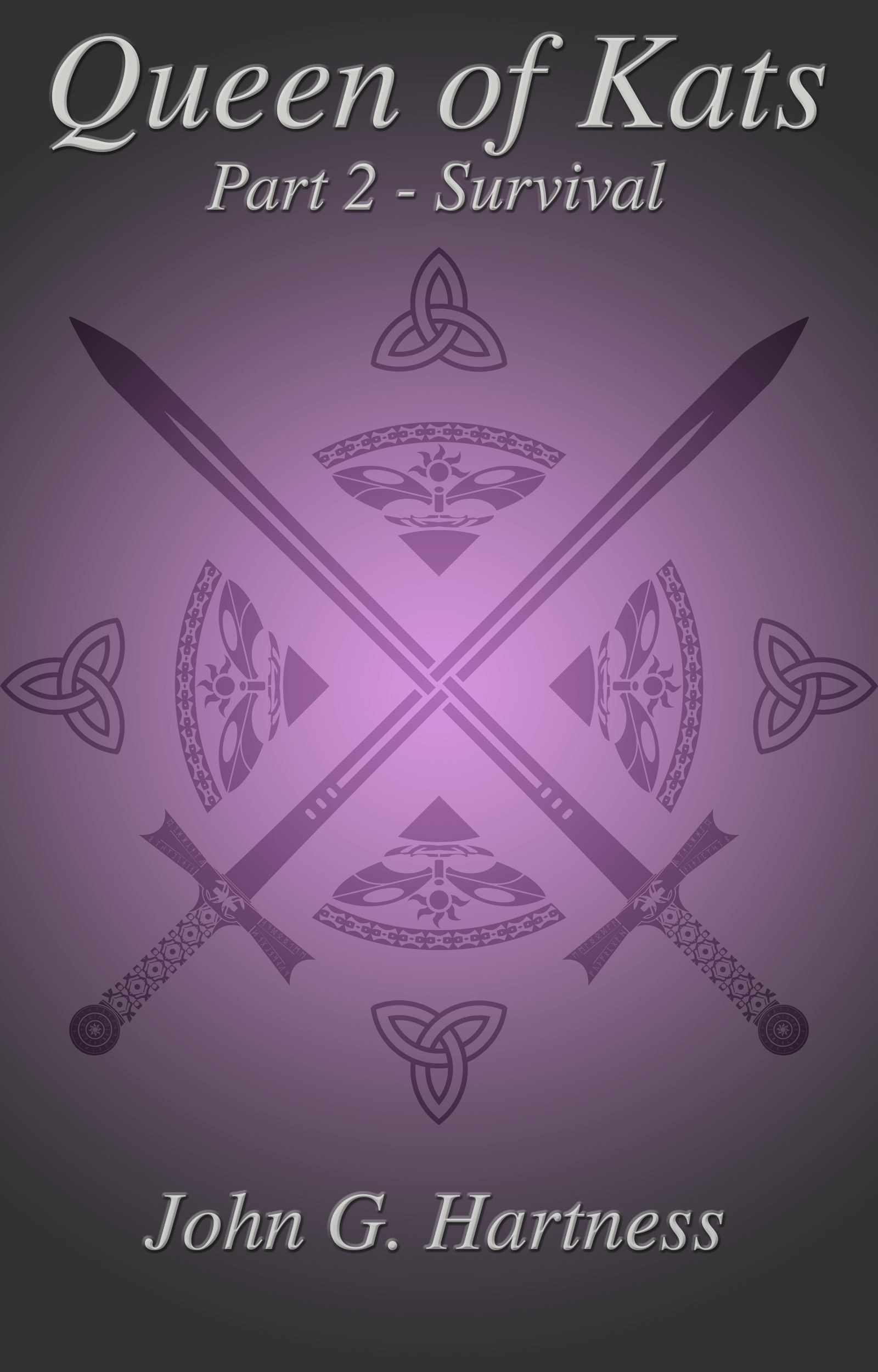
by john | Sep 11, 2016 | Writing
I like music. A lot. I like most types of music, at least a little bit, although I lean more towards the country/folk/bluegrass world, and sometimes I just need a little old-school rock n’ roll or hair metal to get a scene going. So today I’ll give you a little sample of some of the stuff I listen to when I write.
For example, Pentatonix’ version of “Starships” by Nicki Minaj just came on as I was starting up this blog post. Don’t hate, you know it’s fun. That’s on my “Driving Music” playlist that I run in the truck when I’m on a long road trip and don’t feel like listening to an audiobook. That playlist also includes Taylor Swift (because I’m not Tom Hiddleston), Reckless Kelly, a pile of Willie Nelson, some Macklemore & Ryan Lewis (who I have to thank Delilah Dawson for turning my on to way back at a JordanCon dinner with her, Seanan McGuire, James Tuck, Stuart Jaffe, and a pile of other people years ago), Blake Shelton, Turnpike Troubadours, and Tori Amos. I like to sing along with the radio, so I know most of the words on my Driving Music playlist. If you ever ride any distance with me, you’ve now officially been warned.
When I write, I keep a little more low-key, usually (he says after taking a break to make a futile attempt to blow all the cat hair off his keyboard). That means a lot of Lindsey Stirling, The Piano Guys, John Williams, Ray LaMontagne, Jessica Lea Mayfield, Guy Clark, Tedeschi Trucks Band, Darrel Scott, and Flogging Molly (they have some mellow stuff, just not a ton).
If I’m working on a fight scene and I need to get things rolling, Rob Zombie is my go-to. Dragula or More Human than Human are a good place to start for me, then I’ll move into some old mid-90s Nine Inch Nails or old Jay-Z. The Hamilton soundtrack has been a really good piece to write to lately, but sometimes I get lost in the words and don’t write much because I’m singing along too much. Occupational hazard, it’s for real.
There are a couple of reasons I play music while I write. One is that I love music. It transports me back to where I was when I first heard the song, it makes me feel more energetic, and it gives me a little more rhythm and speed to my writing and typing. Also, it gives my wife a signal as to when I’m actually working and I’m not just screwing around on the computer. It’s hard to tell sometimes when it’s okay to come into the office and chat with me, and when it’s a lot better not to interrupt me. I usually don’t play music when I’m surfing Facebook or CNN, because I watch a lot of videos linked off those sites, so she knows that if there’s music playing and I’m typing, then I’m probably working, and only to interrupt if it’s an emergency. If I’m just screwing around on the internet, then I don’t care if she comes in to chat about the weather. I also use music to drown out the TV in the next room, so it helps me focus, especially the instrumental stuff. I don’t really dig classical, but some of the newer, jazzier instrumental stuff is really good background noise, and I don’t find myself getting interested in the noises coming from elsewhere in the house, so I can focus on getting my words on the page.
What about you? Do you listen to music when you write? What helps you get words on the page?
Do you enjoy these blog posts? I enjoy making them, as well as my Writing Rants podcasts. Other writing advice tips are available as Patron-Only benefits on my Patreon Page and on Magical Words. So check me out there or become a patron and get all my stuff!
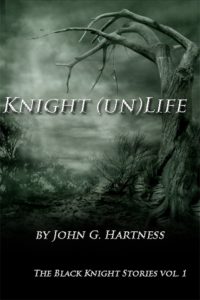
by john | Sep 7, 2016 | Promos/Giveaways
Hey there! This week (sorry I didn’t get the word out sooner, I was at Dragon Con) I’ve got three books running free promotions on Amazon!
First off, Knight (Un)Life – a collection of Black Knight Chronicles short stories. This is a great intro to the series, and some good backstory if you want to see how the boys got started, and some holiday bonus content.

Next up we’ve got the Manly Wade Wellman Award-Winning kickoff novella to the Quincy Harker, Demon Hunter series, Raising Hell. If you’ve been interested in checking out the Quincy Harker series, but didn’t want to spent any money, here’s your chance!
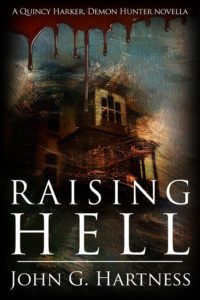
Last, but certainly not least, Queen of Kats Book I – Betrayal is free until Friday. With Queen of Kats Book 2 – Survival available now, I thought it might be a good idea to slap a little promo action onto the first book. So check it out!
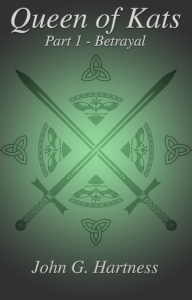
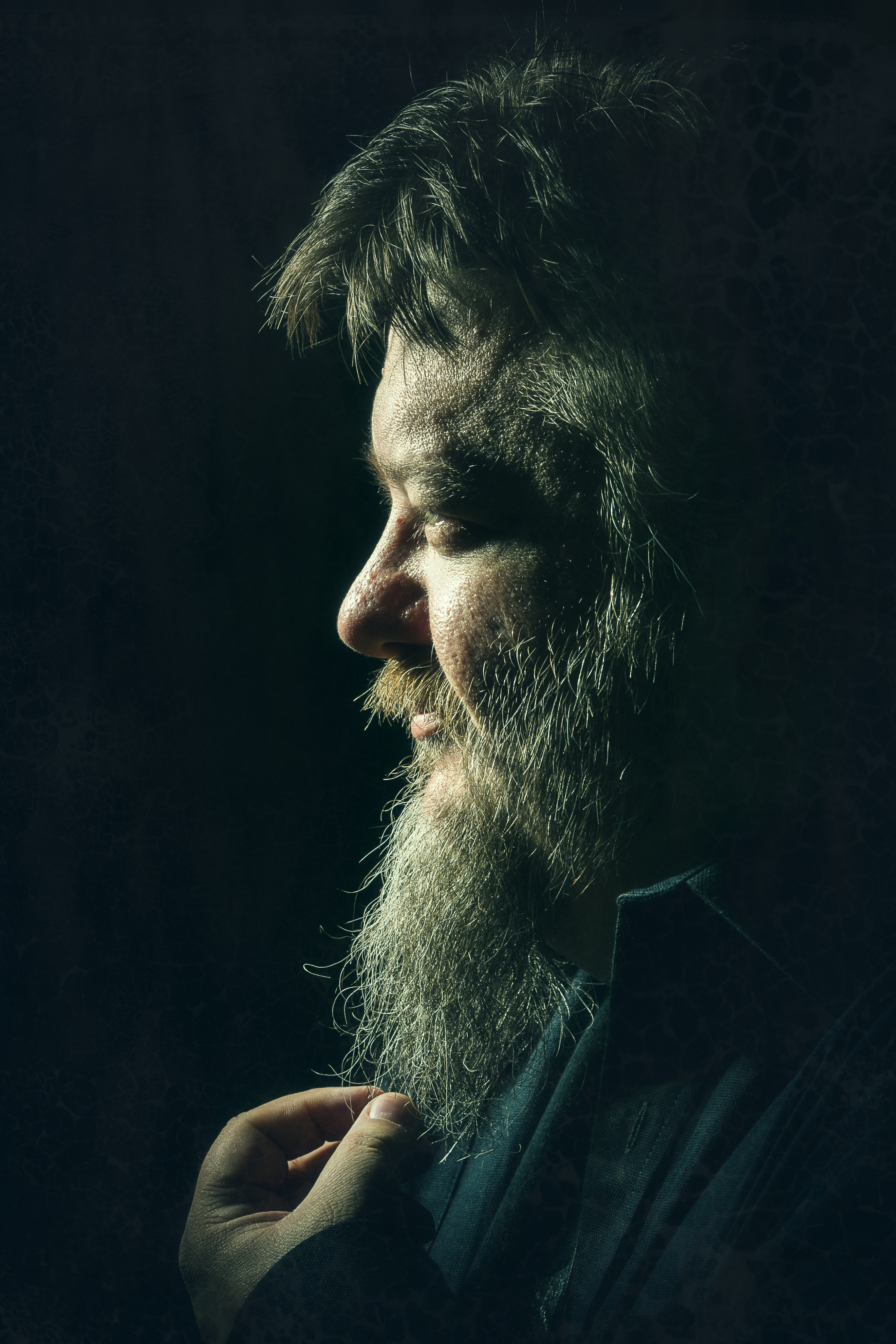
by john | Aug 28, 2016 | Business of publishing, Real Life, Writing
As I’ve said before, this is advice for new writers. Writers with just one or two publication credits. If you’ve got a list of pub credits as long as my…arm, then this probably isn’t the reason your book got rejected. Go back to one of the earlier posts and see the stuff about bad timing, bad luck, or just not being a good fit for a publisher at that time. It’s more likely to be that. But if you’re just starting out, this is the #1 reason most books or short stories don’t get published.
You Don’t Know How to Write for Publication Yet.
This shit is hard, y’all. It takes years to learn how to write a novel or a really good short story. It takes even longer to learn how to do it again and again, day in and day out, either for a living or a supplemental income. You don’t just walk out of college with a freshly minted BA in English and sit down to write your first novel. Okay, you probably do, but it almost certainly sucks. And that’s okay. Your first book, story, blog post, article, poem, or whatever the fuck you want to write is supposed to suck. Just don’t think people are going to pay you for it. And don’t think that it’s worth charging money for it.
So how do you get good? How do you get ready to be published? Well, strap in kids, I’m going to give you the Secret to Becoming a Published Author and getting all the women, blow, and cash you can ever imagine.
Work really hard, study a lot of shit, read a fuckload, and put a metric shit-ton of words on the page.
Come on, there’s no fucking secret to it. I spent almost a decade writing a blog and working for poker websites before I wrote The Chosen. I had more than a million words written and about half a million of it published by someone other than my blog before I started writing fiction.
You want to get good? Write.
You have to write. You aren’t good if you’re getting a lot of rejections. That’s the main reason people get rejected. It’s not because they don’t like you. It’s not because they don’t like your politics. It’s not because they don’t like gay people, or straight people, or white people, or African-Americans. It might be because you’re an asshole, but you can probably hide that for the fifteen minutes someone spends with your query letter. It’s almost always because you aren’t ready yet. You don’t serve mashed potatoes that are cold in the middle, and you don’t get your book published until you know how to write, and how to be a writer.
So what do you do?
Write – and join a critique group. You can’t learn in a vacuum. I learned a ton writing my blog, because I had people reading my work every day, and they would call me on it if something sounded stupid. Then I worked for an editor, and they called me on it when I wrote shit. If you live in the boonies, join an online critique group. I know it’s hard to show your precious little manuscript to a room full of strangers, but suck it up, buttercup. It’s one of the best ways to improve. And no, nobody wants to steal your fucking idea. If you think that people go to critique groups to steal ideas, then just be a goddamn stamp collector, because there are already enough idiots in publishing and writing, we don’t need another one.
Read – it’s a fucking mortal insult when someone walks up to my table at a con and says “I have a fantasy novel I’m writing (have written),” then they follow that up with “I don’t really read, I just want to write.” Fuck. You. Read. Read in the genre. It’s fucking necessary. You need to know what the tropes are. You need to know what the crutches are. You need to know what’s selling, and what’s oversold. You need to know what’s been fucking done to death, and when an original idea is actually original.
Study – There are amazing books out there, many of them written by people who are doing exactly what you want to do – making a living off their words. Why would you not take the opportunity to learn from them? I really like On Writing by Stephen King and Goal, Motivation, and Conflict by Deb Dixon. Every writer in the world has their favorite. Ask someone.
Go to Conventions and Writers’ Conferences – Yes, they cost money. Some of them are expensive. Most of them are worth it. Where else can you sit in a hotel bar and talk with half a dozen publisher writers? Where else can you sit in a room and listen to six or more people tell you how to answer writing problems? I have several friends, manny of whom I’m now publishing with Falstaff, that I met when they were attending conventions and sitting in the audience taking a shitload of notes. They kept their mouths shut and their ears open, and they learned. And they got better, and now they’re building careers.
Write – Oh, did I say that one already? That’s because it’s the fucking key to it all. I don’t give a shit how many hours you work. I don’t give a shit how young your kids are and how much of a pain in the ass they are. I worked two jobs when I was starting out and still blogged every day building my voice. I drove from Charlotte to fucking Arkansas, spent three nights in a hotel to attend a con where I was nominated for an award that I didn’t win, sold two goddamn books, then drove two days home. I’ve been to cons where I slept three or four hours a night because I was networking in the bar (yeah, I know, but I was networking. Ask my friends how many times they’ve been in a bar with me until the wee hours. Then ask them how many times they’ve seen me actually intoxicated. Those numbers won’t match, and you can probably guess which number is surprisingly low.) then got up to make a 9AM panel.
I’ve been to cons with bronchitis when I was so fucked up on codeine-laced cough syrup I don’t remember the convention, and I was at Dragon Con doing panels and working the convention while I knew my mother was dying. I said my goodbyes on Thursday afternoon, told her I loved her for the last time, drove back to Charlotte, got in the car with two friends, and rode to Atlanta. I got the call Monday morning that she was gone, and we buried her two days later. So don’t tell me you’ve got shit to do that gets in the way of your writing career. I’m standing here shouting from the goddamn mountaintops that if there are things in your way that you don’t want it bad enough. Go read Sherrilyn Kenyon’s website where she writes about how she got her start and all the shit she went through. Then tell me your job is hard and you’re too tired.
If I sound hard, and mean, well too goddamn bad.
This isn’t my hobby. This isn’t what I do when I feel like it. This isn’t something I do when the muse strikes me. This is how I feed my family and keep a roof over our heads. And if you aren’t willing to work as hard as I do, then get out of my way. But if you want it, if you are willing to scratch and claw and work for years to get good enough just to get a personalized rejection letter, then let’s go. I will do anything I can for you. I will help promote your shit. I will perhaps even publish your shit. But if you’re in this because you think it’s an easy ride, go somewhere else. I ain’t got time for dabblers.
I just spent two days working a comic con with two friends. One of them is a doctor. He has literally saved lives, and watched people die in front of him. He has a job, an important job, and he’s good at it. We need him doing his day job. But because this is something he loves, he works all week then drives all across the Southeast doing conventions. He works all day and goes home to write. He’s got one novel out now, with two more coming in that series, and I’ve signed him to a three-book contract for another series. Now tell me you don’t have time to get some words on the page.
You want to know why your book got rejected? Because out there in the dark of night, at 11:35 on a Sunday night when I’m writing a blog to promote myself, promote my brand, and hopefully give a little back to aspiring writers, there’s somebody else who’s working on their craft. Somebody who wants it more than you do. Somebody who’s willing to work harder than you. Somebody who will invest the time and energy into developing their writing ability to something worthy of publishing.
Note that I never mentioned talent until just now. I’ve said this from my senior year of college when I first started directing plays. I don’t give a fuck about talent. Talent doesn’t mean shit. Give me a choice between an A-plus talent with a C-minus work ethic, and a C-minus talent with an A-plus work ethic, and I’ll take the work ethic every time. Fuck talent, get to work.
You like this shit? It’s moving come September. My blog will be more events and fun stories, and my writing advice will be for my Patreon patrons. Because I gotta make a living. My podcast will still be free, and my stuff on Magical Words will still be free, so there’s plenty of ways to get my advice for free. But these blog posts will be patron-only. But they will be available for everyone that pledges $1 or more, so it’s affordable. Go to Patreon to check it out.
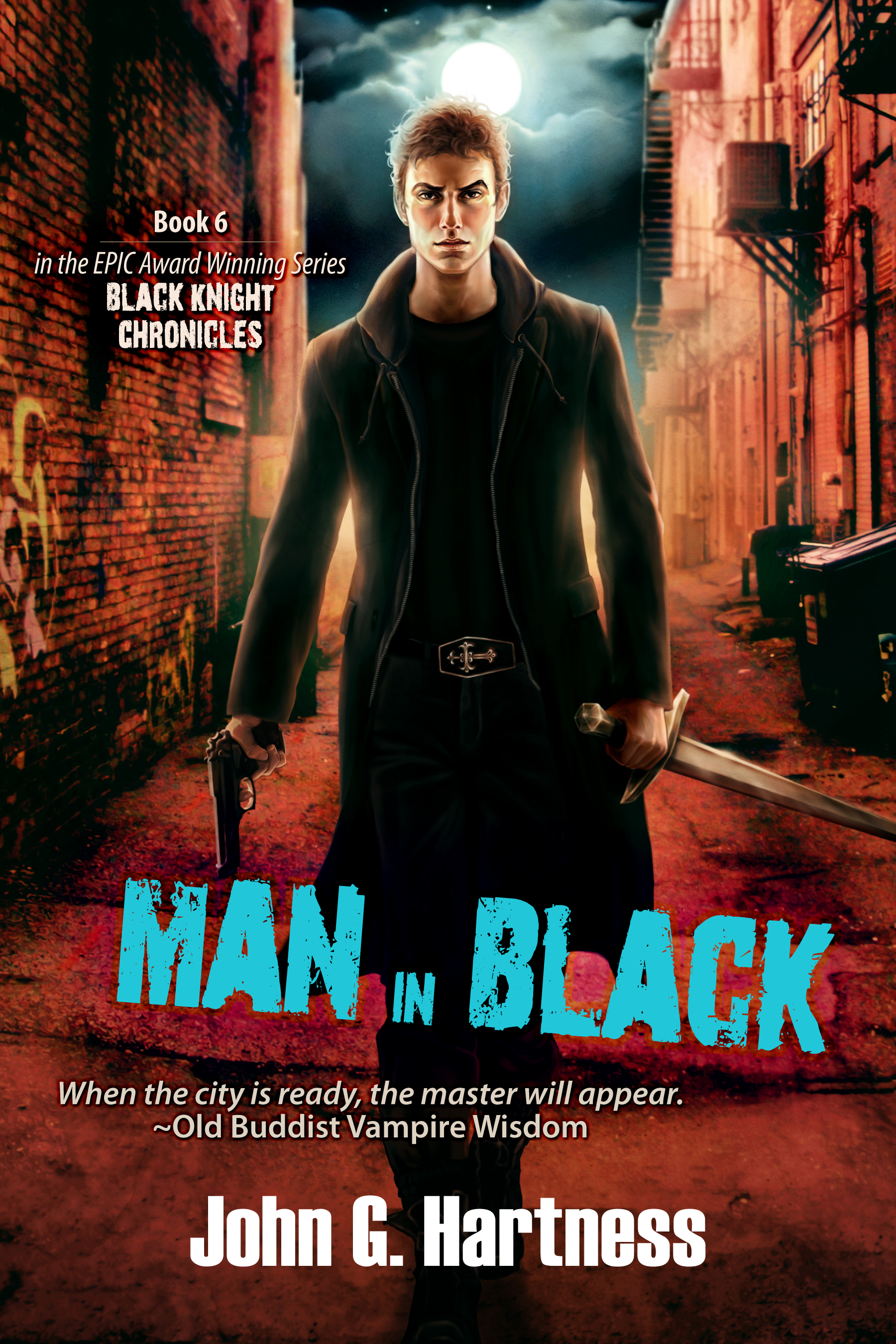
by john | Aug 15, 2016 | Business of publishing, Writing
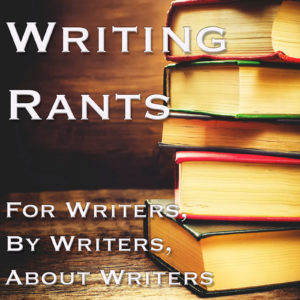 Part 1 of this post got a lot of traffic, generated a fair amount of Facebook discussion, pissed some people off, and hopefully was useful to some of you. It also spawned my new podcast, Writing Rants, which is coming soon right to this here web space.
Part 1 of this post got a lot of traffic, generated a fair amount of Facebook discussion, pissed some people off, and hopefully was useful to some of you. It also spawned my new podcast, Writing Rants, which is coming soon right to this here web space.
I do want to clarify one thing about these two posts – if you are a multi-published author, most of this isn’t going to apply to you. If you have been working in the business for a while, you get to use adverbs, you get to start a story in the wrong place (#2 on the list – spoiler alert) and you sometimes get to use passive voice. Because you have been working in the field long enough to know how to do those things. Presumably.
But at least you have enough equity built up with editors through your publication history that we (I) are willing to give you a shot. If I know you, if we’ve met at a con and shared a table together, you get a lot more leeway than someone who I know nothing about. If your query letter comes in with a list of half a dozen published novels or a dozen or so published short stories, then I assume that if it starts off oddly, you know what you’re doing, and I’ll give you a little more time than someone who has no credits.
That’s not fair. I know. I also know that it isn’t fair I got cut from my Little League team. Bullshit. It’s totally fair, and it’s fine. I got cut from the team because I was too green and not athletic enough. Why did your story get rejected? Well, let’s continue on to the top two reasons I reject a submission.
#2 – Your story starts in the wrong place – I see this taking two forms. In the first, there are certain beginnings that cliché, or at least cliché for certain genres, and I just don’t want to see them. Here are a few things to avoid when submitting –
- Starting off in a dream – Don’t do it. It’s trite, it’s over done, and very seldom done well. Particularly avoid being clever and tricking the audience into thinking that what’s happening in the dream is actually part of the narrative, then jumping out of the metaphorical closet and yelling “GOTCHA!” it doesn’t make you a clever writer, it makes you a douche. And it makes you unreliable to the readers. Remember that every word you put onto the page is part of your contract with the readers, and if they don’t trust you, they will not be invested in the story.
- Getting up in the morning – Reading about someone getting ready for school or work isn’t interesting. We all get ready for school or work every day. Unless there’s something reaching through the mirror while your protagonist is shaving, don’t tell me they shave. Start in the action.
- Starting away from the protagonist – Unless you’re writing a thriller, and you’re starting the book with the Terrible Thing being performed by the villain, and we’re going to return tot he villain’s POV every once in a while throughout the book, Don’t start the book anywhere but focused on the protagonist. You have limited time to introduce the main character and get the audience to love her. Because they downloaded the first 10% for free on their Kindle, and if you don’t hook them in the sample, you won’t get them to buy the rest of the book. I know I download a LOT of samples, and I buy very few of the books I sample. If you want an example of a book that hooks you from the jump and almost forces you to buy it once you read the sample, try Alice
 by Christina Henry. It’s a helluva book and hooked me from the beginning.
by Christina Henry. It’s a helluva book and hooked me from the beginning.
Of Lips and Tongue by AG Carpenter is one that didn’t just hook me from the beginning of the book, it hooked me from the first line of the query letter. “Delaney Green is one of them that don’t burn.” It puts me into the world of the story in one line. I know that it’s Southern. I know that it’s supernatural. I know that supernatural things are somewhat accepted. I know that the character is locked askance at because of her abilities. I got all that from the first sentence of the query letter. I bought the novella, and two more.
In the second, the story just doesn’t do anything in the beginning. Sometimes an author spends too much time setting things up and introducing characters, and not enough time moving the action along and hooking a reader. Remember that I am a genre fiction reader, I’m a genre fiction publisher, and a genre fiction writer. We are not working in the literary fiction world, we are writing potboilers and page-turners. Shit has to happen. And it has to happen from the beginning. It’s not necessary that there be a fight scene on Page 1, but it’s also not bad.
With my book Genesis, the first draft of the book was awful. I started the book 100% in the wrong place. The premise of the movie is Red Dawn meets X-Men: First Class. An EMP destroys the world’s technology, and without the interference of all the tech, people are able to harness the elemental magic of the earth again. This ability only manifests itself in teenagers and people who are more open to change and magic (hippies). I started the book with the protagonist getting ready for school. Then I realized that no one gives a shit about that. so I started the book at the point where the EMP has hit and she and her brother are hauling ass out of the school. The book works much better when it starts in the right place.
By the way, Genesis has recently been uploaded for audiobook, so that will be available soon!
And I’m almost at my thousand word limit, so you’ll have to wait a little while to find out The #1 Reason Why I Rejected Your Manuscript.
And now time for a little shameless self-promotion –
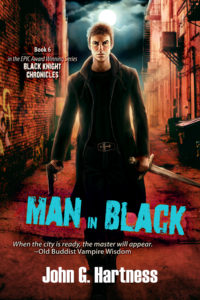 Black Knight Chronicles #6 – Man in Black
Black Knight Chronicles #6 – Man in Black releases today! It’s my book birthday, and yesterday was my birth birthday! So if you want to show the love, go buy the book! If you don’t have $6 to buy Man in Black, check out one of my other books. The Black Knight Chronicles Omnibus
releases today! It’s my book birthday, and yesterday was my birth birthday! So if you want to show the love, go buy the book! If you don’t have $6 to buy Man in Black, check out one of my other books. The Black Knight Chronicles Omnibus , collecting books 1-3, is on sale for $2.99.
, collecting books 1-3, is on sale for $2.99.
And if you have Kindle Unlimited, you can read most of my other work for free! For just $9.99 per month, you can read every Bubba the Monster Hunter story, every Quincy Harker story, and a ton of my other work as often as you like! And right now you can try KU for free for 30 days. Just click Join Amazon Kindle Unlimited 30-Day Free Trial.
If you like these blog posts, and want to see more of them, you can head over to my Patreon and pledge your support. I’ve changed my rewards around a bit, and there are some improved perks at different patron levels, so go check it out and fund my convention travel budget.


by john | Aug 5, 2016 | Appearances, Business of publishing, Writing
Since opening up Falstaff Books, I’ve been dealing with more submissions than ever. This is awesome, because submissions, particularly unsolicited submissions (or “slush”) is how we build anthologies and a catalog. I, just like every editor and publisher I know, am excited every time I open a query letter and start to read the attachment. I want to find the next amazing book or story, because if I publish it, not only do I get to help bring an amazing book to life, but we all get paid. Remember, a reputable publisher doesn’t make any money unless you make money. Unfortunately, most of what comes in on submission gets rejected, and I want to touch on some of my personal top reasons that your story or novel gets rejected. Some of these are pet peeves, and in a world where my time is incredibly limited, it only takes hitting one hot button to get your book or story rejected. So here, in reverse order, are John’s (and John’s alone) Top 5 Reasons I Will Reject Your Book or Story. I’ll bring you Part 2 next week, because this is running long.
5) Bad Timing – sometimes you honestly just get screwed, and you submit a story or novel (for here on out, I’m just going to call them books) that is too similar to something we just acquired, or too much like something else on the market. For example, if you have a great idea for an urban fantasy series about a male wizard for hire in Indianapolis named Barry Teasden who has a spirit trapped inside a gargoyle on his desk, I’m probably going to pass. Frankly, if you have any kind of urban fantasy detective story, I’m probably going to pass unless it’s 100% goddamn amazing, and there’s something to set it apart from any of the dozens of urban fantasy detective series out there. Including the ones written by the publisher.
But a lot of times you can’t know that we’ve just bought a story in the same genre as yours, or have something on the docket that hits many of the same check marks. For example, it would be hard to know that we aren’t the place to send your “changeling travels to Fairy in search of her absentee parent – hilarity does not ensue” novel, because Changeling’s Fall hasn’t released yet. But it will come out late summer/early fall, and it is the first in a series of four novels about that set of characters. So that’s great for us, because it’s an amazing book, but it’s not great for writers of similar books, because that market is now closed to them.
4) Didn’t Follow the Guidelines – When I worked in the lighting business, I was a middle manager. I had a dozen people that reported to me, and I was responsible for hiring and firing them. One thing I was always looking for in people was a college degree. Not that I thought you needed a degree to do the job, because you certainly don’t. But because having a degree was a shortcut to show an employer that you are capable of sticking with one task for a long time and completing it. Submission guidelines are the same thing.
What am I saying? I’m saying that I’m perfectly capable of quickly reformatting your submission into the typeface, font size, and spacing that is easiest for me to read. Take me less than a minute. And that’s not the point. The point is – are you someone who pays attention to detail, or are you a pain the ass? Do you understand that this is a business relationship, and as such there are ways to do things and ways not to do things, or are you a special friggin’ snowflake that I’m going to have to remind to do everything and hound about missed deadlines?
Submission guidelines are a test, like Van Halen’s green M&Ms. The band never gave a single shit about the color of the M&Ms, but a venue that took the time to either adjust the tour rider to take out the stupid line about the green M&Ms, or took the time to pick out the green M&Ms, was a venue that was paying attention to details. And that’s a venue that’s probably going to have the right safety equipment, the right number of backstage passes for family and guests, and won’t have food in catering that the band is allergic to. A writer who follows the submission guidelines to the letter is probably a writer that will respond to edits quickly and succinctly, will get their shit turned in on time, and generally will behave like a professional.
So follow the goddamn guidelines.
3) Book or Story needs work – Nobody’s first draft is worth a damn. Not mine, not yours, not Neil friggin’ Gaiman’s. So polish your work before you send it out for someone to potentially purchase. Have someone help you polish it. There are critique groups everywhere in the world, including online critique groups for people who live in rural areas and don’t have enough people close by. Use one.
Note – I am not suggesting that you pay an editor to polish a book that you want to sell to a publisher. That’s what we do. It’s our job to handle that level of editorial. But I am saying make friends with writers who are where you are in your career, and work together so that all of you get better. Having someone to put fresh eyeballs on your work will help with things like homonyms and words that either aren’t spelled like you think they’re spelled or words that do not mean what you think they mean.
Here are a few things that will kill the submission before it really gets going. Remember, these are things I don’t care for, but they aren’t universal. They’re pretty close, though. Eliminate these things from your storytelling and it will help you make more money as a writer.
Passive Voice – People need to do things, not have things done to them. Brutus needs to stab Caesar, we don’t need to hear that Caesar was stabbed by Brutus. If your POV character keeps having things done to her, then maybe she shouldn’t be your POV character. Or maybe you should write from a closer POV, so we can understand her reaction to these things better. But get rid of passive voice.
“To Be” – It’s really not to be. The more instances of “was, were, are” you can eliminate from your writing, the more immediate you can make it. Use strong, active verbs to tell the reader what’s going on in the scene. I wasn’t standing by the bar watching the room, I stood by the bar watching the room. I am not sitting at my desk writing a blog post, I sit at my desk writing a blog post. The various conjugations of “to be” distance the reader from the action and reduce the immersion of the character into their surroundings. It blunts the edges of your writing, makes it dull.
Adverbs – You get one per every 50,000 words. You can have them back when you’ve published a million words of fiction. Don’t argue with me, just cut out the annoyingly ever-present and ridiculously repetitive adverbs.
That’s enough for Part 1. I’ll come back next week with the next two pieces of the puzzle – Your Story Starts in the Wrong Place, and You Aren’t a Good Enough Writer (Yet). I figure if these didn’t piss everybody off, those certainly will!
If you loved this, hated it, or just want to meet me live and in person, come say hi at the Charlotte Comicon, this Sunday, August 7, from 10AM – 5PM at the Embassy Suites in Concord, NC. More information here.
If you love my work and these blog posts and want to keep me writing, feel free to visit my Patreon page. I give away all sorts of free stuff to my patrons, including autographed books from my collection, free audiobooks, and free ebooks.
Black Knight #6, Man In Black, is available August 15th, just after my birthday! You can pre-order it now!

by john | Aug 1, 2016 | Appearances, Promos/Giveaways, Writing
Hey folks – I know there are a few people who aren’t on my mailing list that sometimes pop by here, so I wanted to give everybody an update on what’s going on and where I will be.
BTW, why aren’t you on my mailing list? Sign up here and you’ll get a free book!
So, new stuff. Here we go. On July 29, I released Heaven Sent, book #5 of the Quincy Harker, Demon Hunter series.
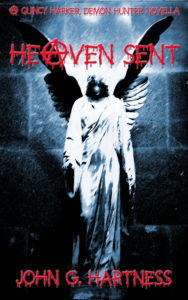
In Heaven Sent, we travel back to 2009 to see the first meeting between Harker and Glory, his guardian angel. She shows up at a crime scene where he is looking into the death of a prominent Charlotte attorney. The lawyer is found in a mall parking lot in the middle of the night, and his body has been drained of most of its blood. Not vampires, this time, the huge slash across the dead man’s throat makes that clear. So why is Harker involved?
To the naked eye, there’s no reason. But when Harker looks over the crime scene with his Second Sight, he sees something strange about the man. Wings. The dead man has a pair of golden ephemeral wings sprouting from his back. The dead man is a Nephilim, a half-human, half-angel hybrid that can walk among the mundane world without anyone ever being the wiser.
Now he’s dead, and he’s not the first one. Quincy Harker has to find out who is murdering angels in the Queen City, and why. Then he has to stop them. Good thing his backup on this case was Heaven Sent.
Heaven Sent is available exclusively on Amazon, as part of it’s Kindle Unlimited service.
I promise, I’ll get into why I went back to KDP Select, making many of my titles available free to Kindle Unlimited subscribers, in another post. Maybe here, maybe on Magical Words.
Coming Soon – Man in Black – Black Knight Chronicles #6

The latest installment of the award-winning Black Knight Chronicles series finds Jimmy Black in more trouble than he’s ever been. He took care of one threat in the last book, In the Still of the Knight, but now he has to deal with all the fallout of the choices he made there.
He’s the new Master of the City, a supernatural crime lord who only ever wanted to be a superhero. He’s been called in by the police to help on a case where he just wants to bite everybody instead of working with them. He just found out that there’s a mysterious Vampire Council, that they’re watching him, and if he screws up – they’ll kill him.
And on top of all that, he’s having serious girlfriend issues.
And oh, yeah, then there’s Lilith…
Man in Black will be available everywhere books are sold August 15th!
Google
Amazon
Kobo
Coming in August – Queen of Kats Part 2 – Survival
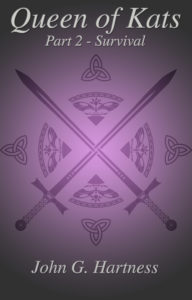
Once upon a time, there was a thief named Remarin. He was a very good thief, if a it lacking in impulse control. Remarin was hired to steal something because, well, thief. He stole the thing, but his fence double-crossed him. Because, well, thief. So Remarin killed the fence and ran off with an urchin boy he found hiding in the back room of his fence’s shop.
Except the urchin wasn’t an urchin.
And the urchin wasn’t a boy.
She was a girl, her name was Kit, and her uncle murdered her father and took her throne. It was all very much like Hamlet, except without the iambic pentameter.
So Remarin traveled through the lands with the disguised princess, finally settling in one spot for just long enough to get comfortable.
Until someone from Remain’s home finds him. It seems Kit isn’t the only one living a life under false pretenses. And now Remain’s past has caught up to him. The thief has to confront his real identity to save his brother’s life in Queen of Kats Part 2 – Survival.
Queen of Kats will be exclusive to Amazon, but you can get it, and all my new releases, early just by becoming a patron! With Patreon, you choose the pledge, and the rewards. Get free stories, ebooks, and previews! Click here to become a Patron!
Coming sometime in September will be a new Bubba novella. More on that as it finishes.
Where to find me
As convention season winds down, I’ve got a few more appearances on the docket this month and next.
8/7 – Charlotte Comicon
8/13 – Clover Community Con
8/27-8/28 – Soda City Comiccon – Columbia, SC
9/2-9/5 – Dragon Con – Atlanta, GA
I hope to see y’all at one or more of these events!

by john | May 23, 2016 | Real Life
Dear Mr. Morgan,
I don’t know you. I don’t know your politics, your faith, or anything about you other than your position as president of the Charlotte Chamber, and that you seem to have a nice tan. And that you speak for the Charlotte Chamber in your recent letter to the Charlotte Observer. I don’t speak for anyone but me. My opinions are not those of a millionaire CEO, or even a six-figure-earning MBA VP in one of the downtown towers. I’m just a small businessman working out of his spare bedroom trying to make ends meet. As such, I’m probably not terribly important to you and the people you claim to represent.
But here’s what I am, Bob. I’m as staunch an ally to Charlotte LGBTQ community as I know how to be. And I vote, both in the booth and with my dollars. And apparently there are a lot of me around, because when the last City Council failed to pass an anti-discrimination ordinance in Charlotte, we voted in a Council that would. And they did.
And then your buddies in Raleigh, who you are showing more loyalty to than the people you are hired to promote in Charlotte, reached down and yanked away not only the blanket of protection that Charlotte put into place for LGBTQ citizens, but also stripped away rights from every municipality in our state, and from everyone who has ever held a job in North Carolina. And if our City Council “lit the match” by passing a non-discrimination ordinance, our state legislature “went nuclear” by not only removing protections for LGBTQ citizens, but also anyone else that is wrongfully terminated for a reason other than a very narrow set of reasons that follow almost identically the federal EEOC guidelines. And if HB2 was merely a reaction to Charlotte’s “overreach,” why does the majority of this bill address subjects that have nothing to do with Charlotte non-discrimination ordinance?
Charlotte’s ordinance had nothing to do with minimum wage, yet it’s part of HB2. Why is that?
Charlotte’s ordinance had nothing to do with bringing suit against an employer in state court, yet that ability is removed by HB2. Why is that?
If this was really about bathrooms and protecting the innocent women and children of our state, why does only one in three sections of HB2 – 33% of the law for the mathematically challenged – have anything to do with bathrooms?
This is not about bathrooms, Bob. It is about making sure that our people are protected, not just from discrimination in restrooms, but from wrongful termination, and from being paid unfairly for the work they put in.
And you want to compromise on these issues? You want to fly in the face of Bank of America, American Airlines, Wells Fargo, Red Hat, Time Warner Cable, PepsiCo, and Rob Reiner? Come on, Bob, even Archie Bunker’s son-in-law “Meathead” knows this law is wrong!
Negotiation on human rights gets us “separate but equal.” Negotiation on human rights get us “domestic partnerships.” Negotiation on human rights gets us right back to Jim Crow.
I am not calling for “inaction” by my City Council. I am calling for steadfast resistance. I am calling on Mayor Jennifer Roberts and Council Members John Autry, Patsy Kinsey, Julie Eiselt, and LaWana Mayfield to stand firm against these calls to “compromise,” which are really just Raleigh telling Charlotte’s leadership to toe the line they have drawn. I don’t want city leadership that will toe anyone else’s line. I want city leadership that will push that line of equality and progress forward.
And Bob, if you, as president of the Charlotte Chamber, aren’t interested in pushing that line forward, then you should resign. Yesterday would be a good time for that. Because if you aren’t part of the solution, you’re part of the problem, and bowing to Raleigh’s demands and giving a victory to a gerrymandered and corrupted process is no solution.
Make no mistake, Bob, we are in a fight for the soul of our state. Not just about bathrooms, or LGBTQ equality, but about progress versus fear, about acceptance versus ignorance, and about honest concern for the well being of your fellow man versus manipulative, fear-based politics that exist only to line the pockets of the few at the expense of the many.
So pick a side, or stand aside. But there must be no compromise, and history is watching.
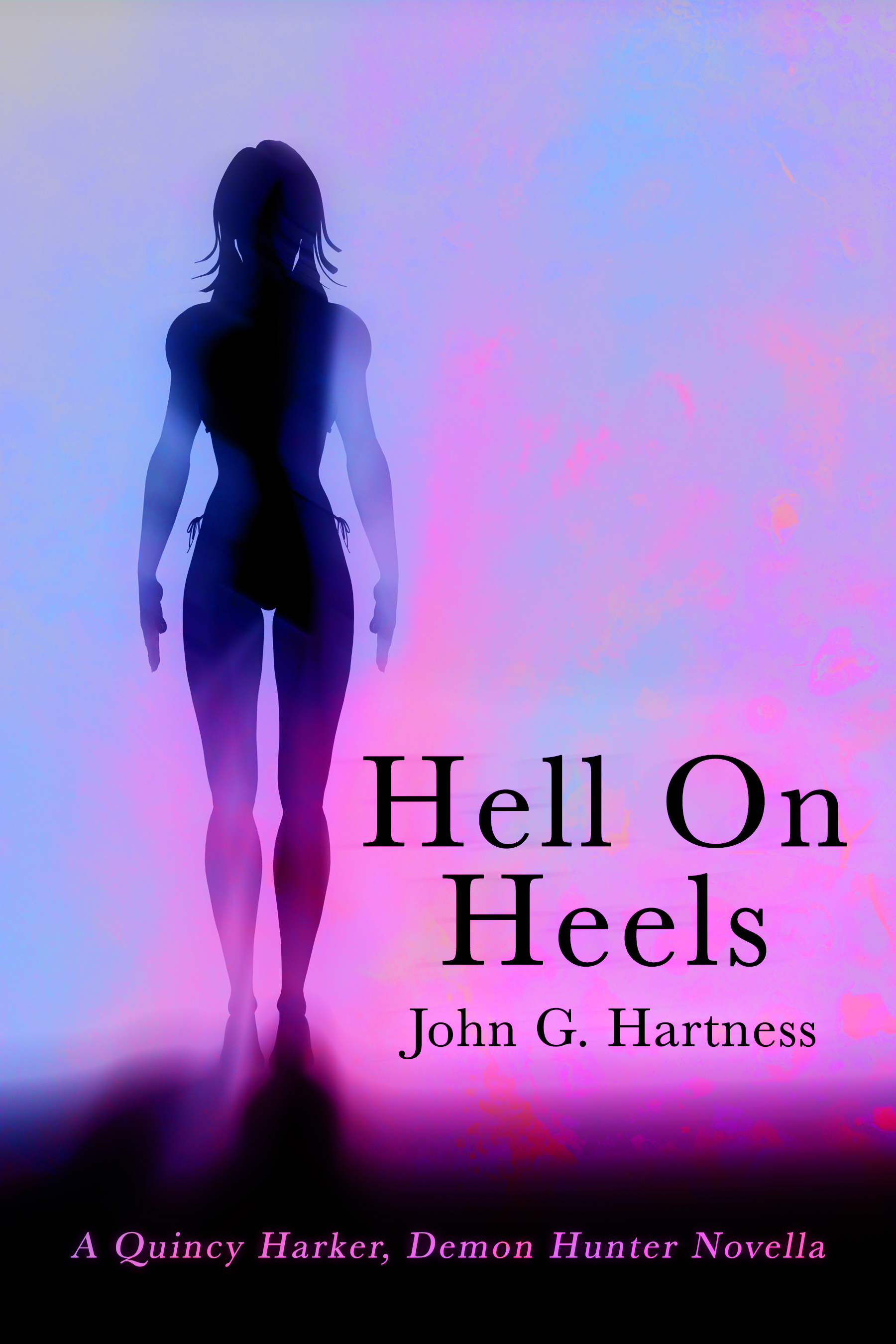
by john | Apr 26, 2016 | Business of publishing, Writing
Let’s be clear. I’ve never met Ros Barber, as far as I know and can recall. Since she’s an academic and poet living in England, I’m probably pretty safe saying we’ve never met, but there are these great things called airplanes that take people across the great big waters and there is a chance we’ve met and I just don’t remember it. But i really don’t think so. So I don’t know the lady. She’s probably a perfectly fine human being. I doubt she kicks puppies or takes away walkers from old people or tosses children’s ice cream cones on the ground or does anything generally despicable.
What she has done, as have many writers for The Guardian in the past, is written a clickbaity article decrying self-publishing as a viable career path for writers and generally insinuated that self-published writers are less talented, less skilled, and generally less writerly than other writers.
And people that are generally intelligent are taking her word as gospel, and that’s a shame. Because, like I said, these people are generally intelligent, but may have blinders on about some realities of the writing world today. So I decided to take a close look at Ms. Barber’s article and apply the filter of my own experiences to it. I don’t know if I’ll go point by point, because frankly, I may get bored and may have to go actually, you know, write at some point today, since that’s how I make my living and feed my family. I don’t have the backup of writing pissy articles for a website or teaching at a university to cover my living expenses, I have to do it through my fiction writing, unlike Ms. Barber.
Before I begin, I want to say this – self-publishing isn’t for everyone. For a lot of people it’s not the right choice for a variety of reasons. But to deride it as a viable career choice is frankly bullshit, and to make every self-published author out to be an unskilled writer with a lifestyle more akin to carnival barker than storyteller is unfair, uninformed, and makes you sound like an elitist assclown.
- “You Have to Forget Writing for a Living” – right out of the gate, Ms. Barber talks bout how much time is spent promoting a self-published book, or series of books. She jumps right into the deep end, talking about how self-pub writers spend 90% of their time on promotion, and only 10% of their time writing. Let’s look at my typical work day to provide an example of how much time in a day I spend on book promotion.
Wake Up – 7-8AM – I’m generally in front of my computer answering emails and eating breakfast by eight each morning. I spend the hours from 8-10 usually goofing off on Facebook, answering emails, putting out fires either with books in production, projects coming up from Falstaff Books, or just watching cat videos.
Write – 10-11AM – I usually shoot for about an hour of actual writing each morning. That gets me 1,000 words on the page in the morning, and that’s pretty decent.
More email/Facebook – 11AM-Noon – also frequently means editing something for Falstaff, doing a cover design, working on a book layout, working on a calendar of releases, confirming travel details, whatever.
Lunch – Noon-1PM – Suzy and I try to have lunch together, and I try to stop staring at the computer screen for an hour.
1PM – 2PM – Answer emails, finish up pre-lunch business
2PM – 3PM – Write – the goal is to get another 1,000 words in after lunch.
3PM – 5PM – Edit, work on covers, check in with my partners at Falstaff about their ongoing and upcoming projects, help Suzy lift a few heavy things out in the yard, maybe do a little prep work for a convention if there’s one coming up that weekend. Make sure I have inventory ready for upcoming conventions, and start looking at/booking conventions for 2017. We’ll call that 30 minutes of convention work “promotion.”
5PM – 6PM – Read for revisions and sometimes in the evenings I try to get another 1,000 words in.
I honestly spend perhaps half an hour each day on real promotion of my work, plus an hour on weekends setting up social media posts for the week. That equates to roughly 3.5 hours out of the let’s call it 50 hours each week that I work. That’s about 7% of my time spent promoting.
I try to write for two hours each day, and some days I get an extra hour, so we’ll guess that I write for about 12 out of the 50 hours I work. That’s 24% of my time spent writing.
What happens to the other 69% of my time? Well, 3-4 hours each day are spent working on one of three businesses I run – a publishing company, a lighting sales rep company, and a Magic card sales company. And I watch a lot of cat videos on the internet. So just like at your job, not everything I do in a day results in words on a page. Sometimes I write long blog posts.
2. “Self-Publishing can make you act like a fool” – So can being hired to write for The Guardian. Yes, lots of people behave like jackasses on social media. Let me introduce to a gentleman named Rob Gronkowski. Moving on.
3. “Gatekeepers are saving you from your own ego” – I had a lot of snarky responses about saving me from the ego of PhDs with accents, but deleted them because that’s not where I want to go. Let’s just say that agents and acquisitions editors are not the arbiters of taste or quality writing. They are looking to buy books that sell, not necessarily books that are brilliantly written. So the gatekeepers that will save you from your own ego? We call those readers. And if they don’t like a book, they won’t buy it. Or worse, they will, and they’ll leave savage reviews everywhere to save other readers from their pain. So yes, gatekeepers will save you from yourself, but not the gatekeepers you think.
4. “Good writers become good because they undertake an apprenticeship. Serving your apprenticeship is important. – In some ways I actually agree with this, although not at all with the feudalist in which it is phrased. You do need to learn to write before you self-publish a novel. And you can best learn to write by writing a lot of terrible shit that is unworthy of publication. And some of us do that by blogging for half a decade and writing 400+ semi-journalistic poker articles before we branch out into fiction. Some people just write a good book the first time. You don’t get to decide who’s good enough, or educated enough, or talented enough – the readers do. This is the core educational elitism that i take issue with. Just because you’re an award-winning poet with a PhD doesn’t mean you’re qualified to judge anything about my self-published work. I’m an award-winning poet with the word “Publisher” behind my name on my business cards, and I still don’t get to tell you anything more about the works of Christoper Marlowe than you get to tell me about computerized theatrical lighting control systems (unless you’re also an expert on those, which it doesn’t mention in your bio).
5. You can forget Hay Festival and the Booker – so can every genre fiction writer in the world. Stephen King and George R.R. Martin give not a single fuck about those prizes. And frankly, Pat Conroy did pretty well writing literary fiction without ever winning any of those awards. So write what you want, and fuck awards.
6. You risk looking like an amateur – only to elitist assclowns. Readers who see me at a table with Faith Hunter, Gail Martin, David Coe, A.J. Hartley or any of my other traditionally published friends can’t tell the difference between my self-published paperbacks and their traditionally published paperbacks. The only people who give a shit are writers, and mostly wannabe writers.
7. “70% of Nothing is Nothing” – True. You might not make any money as a self-published author. You might lay out a grand to get your book edited, get a decent cover, get it proofed and converted, and then maybe make less than a thousand dollars off the book. You might also get a $5,000 per book advance from a traditional publisher, give 15% of that to your agent, get your book published and on the shelves in local bookstores, then not sell worth a fuck and get dropped from your contract before book 3 in the series comes out. Then you’ve got $4,250 per book, a series you can’t finish, and years of your life you can’t get back when you could have been writing something else.
Or you could bust your ass and make a living. I do. I don’t make a glamorous living. I’m not living in a mansion, but I make my mortgage payments. I don’t drive a Mercedes, but my truck will be paid off this year. I don’t eat caviar, but I don’t miss any meals, either. So if you want it, it’s out there. But you have to want it. And you have to be willing to work harder than anyone else, because that’s what small business owners do. And if you don’t look at your writing career as being a small business owner, then you’re not ready to have a writing career, no matter how you plan to publish.
Writing is hard. Writing novels is hard. Selling books is hard, and anybody that tells you they’ve got a silver bullet for you is a fucking liar, and keep your hand on your wallet while you talk to them. But don’t shit on anybody else’s dream just because you can’t make a living at this. Don’t spout your barely-researched half-“truths” because you wanted to write poetry and literary fiction, but you were too scared to take the leap, so you got a job teaching “to fall back on.”
If you want to be a writer, be a fucking writer. if you want to encourage people to choose a career path you love, go for it. But don’t look in from the outside with no experience and tell the world that one path is the wrong path just because you’re afraid of looking stupid and trying it. If you don’t have to guts to jump, don’t stand at the bottom of the high dive platform and tell everyone on the ladder they’re stupid. Buy a ticket, sit in the stands, and applaud the bravery of others. Or suck it up and jump in the pool.
Rant over.
John G. Hartness is a teller of tales, a righter of wrong, defender of ladies’ virtues, and some people call him Maurice, for he speaks of the pompatus of love. He is also the author of the EPIC-Award-winning series The Black Knight Chronicles from Bell Bridge Books, the Bubba the Monster Hunter series of short stories and novellas, the Quincy Harker, Demon Hunter novella series, and the creator and co-editor of the Big Bad anthology series, among other projects.
In 2016, John teamed up with a pair of other publishing industry ne’er-do-wells and founded Falstaff Books, a small press dedicated to publishing the best of genre fictions “misfit toys.”
In his copious free time John enjoys long walks on the beach, rescuing kittens from trees and playing Magic: the Gathering.
For samples of John’s ridiculous sense of humor, check out these free ebooks – http://bit.ly/1U8eASF








 Black Knight Chronicles #6 –
Black Knight Chronicles #6 – 







